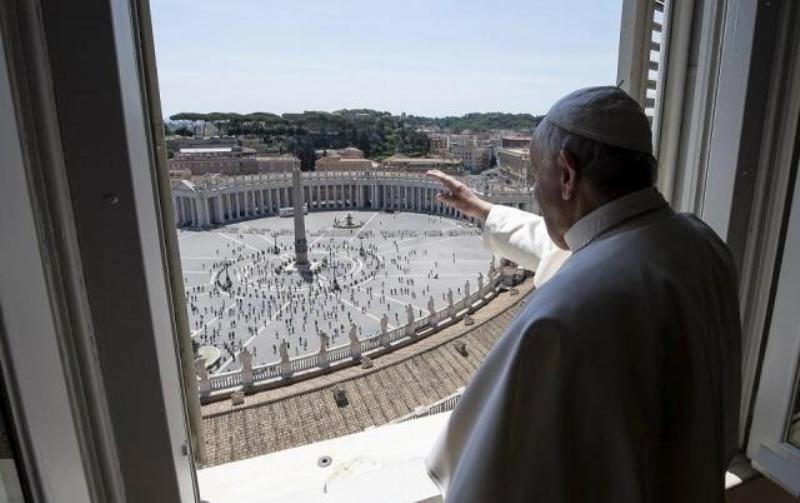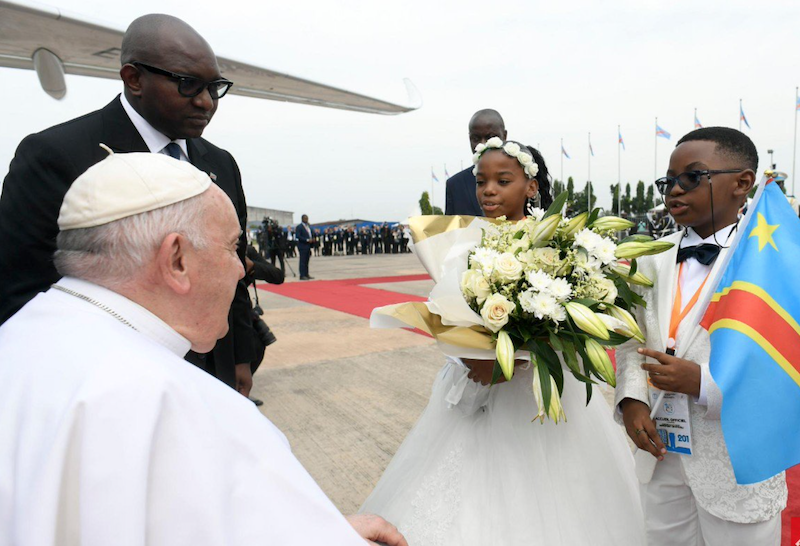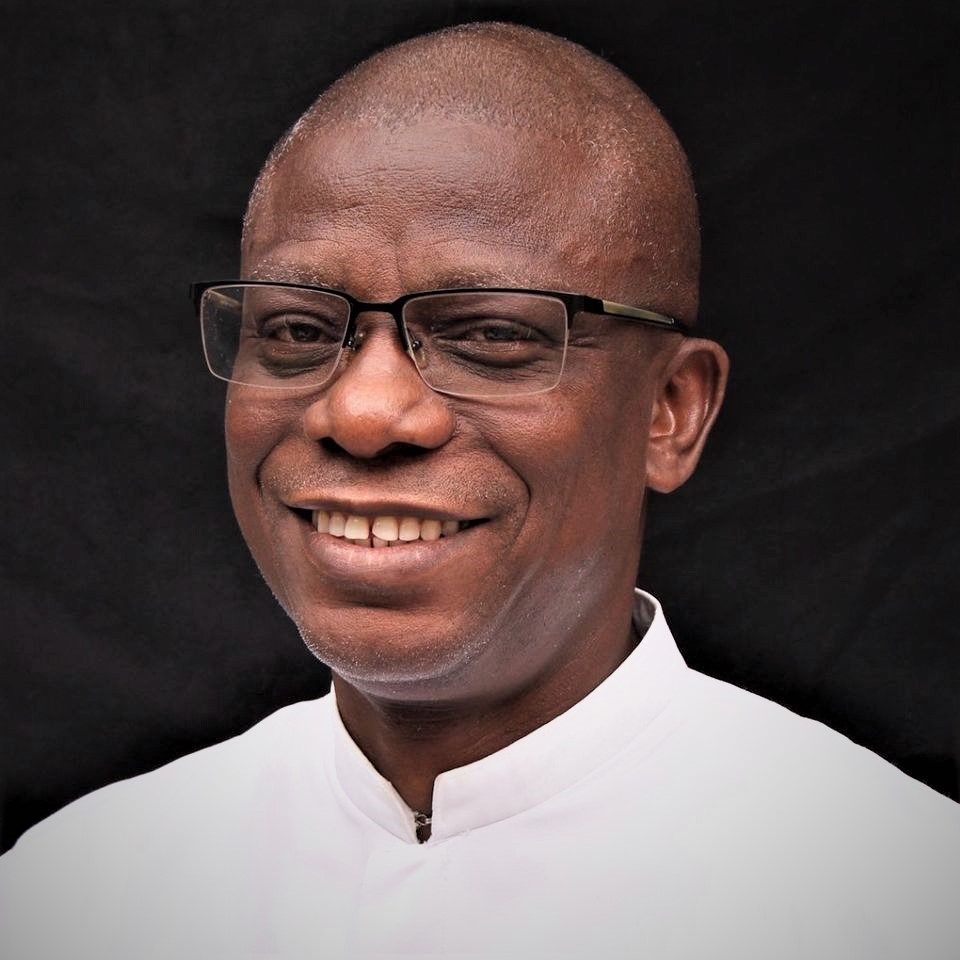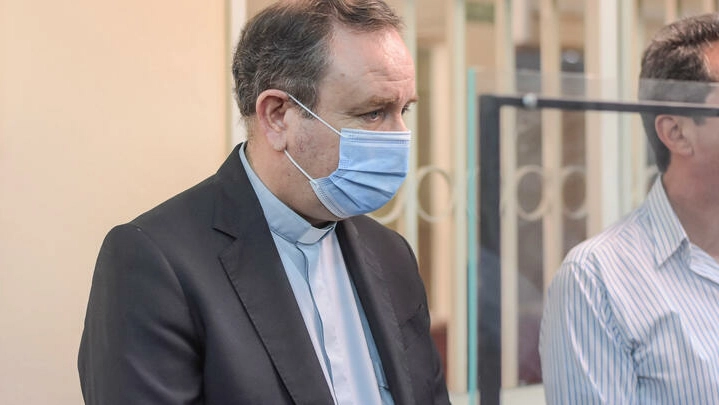Former President Olusegun Obasanjo has once again done what he is reputed for. He has cast a big stone into Nigeria’s brackish political pool. The splash is all over the place. Like a papal encyclical, Obasanjo’s new year day’s endorsement of Labour Party’s Mr. Peter Obi for the imminent presidential election has hit the political landscape with some loud bang. Some partisans still pretend they cannot hear the bang. But the feverish responses testify to a political landscape that is basically agitated by a disruptive presence.
Obasanjo’s intervention has come in the midst of a rudderless campaign that is heavy on personal abuse and light on issues, substance and depth. Admittedly, the Abeokuta general has neither deepened nor expanded the scope of the ongoing campaigns. He merely threw his mass into the tripartite partisan scale on the side of Mr. Peter Obi. And by bundling Mr. Bola Tinubu and Atiku Abubakar into one heap of “politics as usual” compartment, Obasanjo has vicariously restored the original bipartisan architecture of the looming contest by redesigning it. The election is now a referendum between Obi’s ‘new nation’ youth driven politics versus the old traditional politics that we are used to and largely fed up with .
Afraid that his intervention might be orphaned, Obasanjo embraces the youth appeal of Mr. Obi’s movement. His appeal to the youth is as pointed as it is trenchantly self -serving. But it does resonate with a contemporary relevance that is clear and urgent. The youth of Nigeria , to be fair, constitute the target audience of much of Obi’s appeal and are the definitive demographics that every serious politician should now target.
Predictably, Obasanjo’s endorsement of Obi has been greeted by a barrage of hostile verbal and media firepower from three predictable quarters. Obasanjo predicates his endorsement on the carnage that has been created by incumbent President Muhammadu Buhari and his APC devotees. So, Obasanjo has vicariously lumped Mr. Buhari and the other two major parties in one untidy heap.
On their part, the major contenders and their parties have understandably swooped mercilessly on the Owu chief. Of course, the jungle rules of partisan dueling dictate that the friend of your opponent automatically becomes your adversary. The APC and PDP have a right, indeed an obligation, to jump on Obasanjo and try to diminish the import of his endorsement intervention. And the easiest way to do this is to go after the man and his past.
For the APC in particular, there are multiple echoes underneath the disquiet. Some APC partisans see Obasanjo’s inherent opposition as a continuation of his frequent anti Buhari stance. Some may even concluded that it may be a nostalgic hangover effect of his previous PDP alignment.
The presidency’s attack hounds have sprang into action, smelling blood in Obasanjo’s current unfriendly political trail. They have delved into motives and reduced the endorsement to the continuation of a personality contest between Mr. Buhari and Obasanjo, his erstwhile boss and supporter. They have of course gone into an untenable comparison of Obasanjo’s gigantic national and international stature with Buhari’s more modest and even pathetic credentials.
Other predictable castigations of Mr. Obasanjo’s perceived partisan meddlesomeness have followed in tandem by a parade of pro regime attack hounds. It remains doubtful whether any significant audience will spare a second for the Aso Rock rebuttals and authorized bullying. The Buhari lame duck incumbency is too badly degraded and terminally deformed to attract any meaningful audience.
Within the Tinubu camp, there is a hint that Obasanjo is continuing the anti Tinubu streak that characterized his attitude as president to Tinubu as governor of Lagos state. Beneath the reactions to Obasanjo’s endorsement of Obi is a loud echo of ethno national discontent and sense of kinship entitlement.
On the part of Mr. Atiku and the PDP, the animosity is somewhat personal. No one knows exactly what transpired between both men in their Aso Rock days. While Atiku keeps trumpeting his stewardship as Obasanjo’s deputy as his cardinal qualification for insisting on seeking a job he had sought on three previous occasions, Mr. Obasanjo does not seem to have been so impressed by Mr. Atiku’s deputizing skills. Obasanjo remains hesitant to entrust Nigeria’s future into Atiku’s hands. An applicant for a job who cannot get a ready positive reference from his boss of eight years definitely has a bit of private soul searching to do.
Politically, the repeated question has been that of whether Obasanjo’s endorsement carries any political weight. Yes, it does to an extent. Obasanjo is a two term elected president. To that extent, he comes with considerable national political gravity. That political heft is however dispersed instead of being localized in his home base southwest environment. His name recognition is phenomenal both nationally and internationally. Every voting age Nigerian knows Obasanjo even if not everybody loves him. To that extent, Obasanjo’s knock can open a few important doors for Mr. Obi at home and abroad. Among the so -called ‘owners of Nigeria’ the pantheon of former Nigerian leaders and political heavy weights whose influence controls Nigerian affairs, Obasanjo is not exactly a light weight. He shares with Babangida a certain oracular import that can get many Nigerians looking up at least to listen.
In terms of votes, which ultimately will determine who moves into Aso Rock Villa, Obasanjo’s endorsement of Obi will deny Atiku and Tinubu a few thousand votes and cause both of them many nights of insomnia. In an electoral democracy, Obasanjo of course has one vote. But his voice resonates in the ears and hearts of many. Yet by endorsing Mr. Obi, Obasanjo could sway quite a few undecided voters. Statistically, every vote lost to Tinubu and Atiku by Obasanjo’s urging would be a vote earned by Mr. Obi.
To that extent, the Obasanjo endorsement can contribute a substantial trove of votes to Obi’s growing popularity and disruptive power to the political status quo.
On the surface, those who may not support the emergence of Mr. Obi as Nigeria’s future president have dismissed the Obasanjo endorsement as inconsequential. Yet the loudness of their protests, condemnations and tirades indicate a high level of anxiety which may be an admission of the threat posed by Mr. Peter Obi. Mr. Obi’s rising profile is understandably menacing to the collective unconscious of the Nigerian political establishment in the post civil war era. The unstated discomfort about Mr. Obi’s prospects come from a subliminal discomfort with the sound of his surname and maybe his mode of worship.
Nonetheless, at the level of basic norms of democracy, those who have been condemning Obasanjo for this endorsement are being unfair and even deliberately mischievous. As a citizen, Mr. Obasanjo, like everyone else, has a right to express his preference for any of the candidates vying for the office of president. It is his inalienable right. It is an expression of his freedom of choice under the law. We should respect that freedom and strenuously protect it both for Mr. Obasanjo and for every other single Nigerian. To abuse, excoriate or torment Obasanjo for holding views, expressing a preference for or even a partisan alignment is to go against this fundamental tenet of democracy.
In saying so, one is fully cognizant of Obasanjo’s problematic roles and history in Nigeria’s previous leadership selection processes. As an outgoing president in 2007, Mr. Obasanjo arm twisted his PDP machinery to enthrone the ailing Mr. Yar’dua as his successor in office. With the benefit of hindsight, that act runs against his current reservations against one of the presidential candidates in the 2023 race on grounds of health. Similarly, his role in the emergence of both Goodluck Jonathan as Yar’dua’s successor has come under attack. On the surface, thes interventions fly in the face of his persistent pretensions to absolute objectivity in matters of national leadership. But underneath Obasanjo’s past interventions in our leadership slection, there is a perceivable strategic intent. Geopolitically, the northern Yar’dua was a natural choice after eight years of an Obasanjo southerner. Similarly, a Goodluck Jonathan was a logical palliative to the restiveness and cries for justice in the Niger Delta. Fifty three years after the civil war and unbroken exclusion of Igbos from apex political leadership, there is both a strategic logic and an overarching urgent moral imperative to Obasanjo’s Peter Obi endorsement.
But as he rightly admits in his latest papal message, no one is infallible in matters of political judgment. Both society and politics are dynamic. Obasanjo cannot be denied the right to adjust his political alignments and beliefs in line with changing national realities. This is the context in which his endorsement of Mr. Obi becomes understandable. And in all fairness, Obasanjo is on record as having made repeated efforts to birth a Third Force in Nigeria’s political architecture. His aim in these efforts has been to break the bipartisan monopoly of two dominant parties in the post military politics of the country. It is quite possible that Obasanjo may have seen in the emergence and momentum of Mr. Obi’s ‘OBIdients’ and the Labour Party a short cut to his pet project of a Third Force. Every political experiment needs a chance to prove itself.
Hate him or love him, nonetheless, the positive contributions of Mr. Obasanjo to our national evolution cannot be denied or sacrificed on the altar of present political expediency. Nor can anyone rightfully diminish Obasanjo as a credible role model for Nigeria’s aspiring leadership. Yes, Obasanjo is not infallible. He can be instinctually bullish at times. He has a tendency to want to monopolize wisdom even on matters that he knows little about. He is frequently subject to an unmerited messianic complex. He has this disturbing tendency to feel that no one else can surpass his contribution to Nigeria’s development and progress. All these are well within the limits of the range of flaws allowed a heroic figure and historic personage.
Yet he remains a beacon of willful personal accomplishment and therefore a good role model for our youth. From very modest beginnings as an ordinary army mechanic, Obasanjo rose to become an active combat officer struggling to become a gentleman. History thrust him into the roles of deputy to Murtala Mohammed and subsequently Head of State. As military Head of State, he is on record as the first of our military leaders to hand over power peacefully to a democratically elected civilian administration in 1979. Later, when he was elected president, he was also the first democratically elected leader to hand over power to a successor democratically elected administration in 2007. To that extent, his contributions to the emergence of Nigerian democracy remains unsurpassed and cannot be waved off casually.
At the level of personal improvement and leadership preparation, Obasanjo since has since after retiring from the military in 1979 embarked on significant self -improvement in education especially. In addition to owning and running schools and universities, he has personally undertaken significant adult education. In the process, he has earned post graduate degrees including a Ph.D. from the National Open university of Nigeria. In these post- retirement years, he has written books and papers on a variety of subjects such as politics, warfare, governance, African development, international relations, religion, self- improvement and agriculture. To wit, he has also been a ‘political prisoner’ during Abacha’s bloody interregnum, a veritable ‘qualification’ of many third world politicians.
Obasanjo remains a detribalized leader, a transparent and inclusive patriot and a veritable inspiration for those who seek leadership that tried to govern responsibly in his days both as military and elected sovereign. It is on record that as elected president, Obasanjo led the last growth driven administration which also reduced our external debt burden to almost zero. Because of these and his other many interventions in national history, Mr. Obasanjo has earned a right to judge subsequent administrations on matters of responsible leadership and reasonably accountable governance. Above all, he has earned a right to be heard on major national issues and at critical moments of national history. To ignore his towering nationalistic import and instead take to castigating and insulting him is political bad manners and polemical rascality taken to ridiculous levels. That such personal abuses and insults are coming from the sundry minions of today’s presiding Medieval court says much about the level of decline of not only our public affairs but also a certain collapse of public discourse and civil communication in our nation.
It matters little to this reporter who Obasanjo decides to endorse or oppose for 2023. That is squarely within his democratic prerogative as a citizen of Nigerian. Leaders and followers alike reserve the right to support or pull their support from candidates of their choice. In the run up to the 2021 US presidential election, America’s past leaders like George Bush Jr., Bill Clinton, Barack Obama and even Jimmy Carter refused to endorse Donald Trump for a second term in the White House. Other major voices and leaders like the late Collin Powell and many past military and key civil leaders joined in the opposition to Trump. In America’s bipartisan political architecture, refusal to endorse Trump invariably implied endorsement of Joe Biden. Biden won clean and square and American democracy got a chance to recover from the tragedy of Trump’s first term.
But in all this, I must confess to a personal sympathy for Mr. Obasanjo and a high regard for his patriotic fervor. While I detest his sanctimonious rhetoric and crude methods, I must pay tribute to his unstinted nationalism, essential humanism and inclusive patriotism. His sense of inclusiveness and embrace of our diversity remain unquestionable.
In 1970 as Commander of the Third Marine Commando Division, he had the task of bringing the Biafran war to a close by receiving Biafra’s surrender instruments. Obasanjo had a choice. He had all the instruments of war and a decisive open-ended command in a chaotic atmosphere. He could have exterminated most Biafrans. He did not. That principled conduct spared Nigeria a heritage of last minute genocide, thus ensuring an orderly end to an unfortunate conflict.
A Pope is after all still a human like the rest of us. But the roles implicit in the discharge of his papal duties make him infallible in the eyes of the faithful. Pope Obasanjo is one of us!







